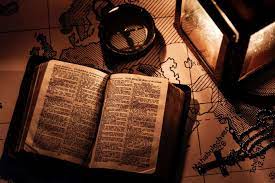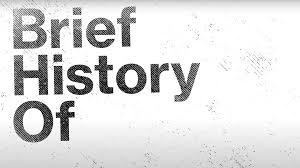Unraveling the Mysteries: Exploring the Unknown

The Allure of Mystery
From ancient legends to modern-day thrillers, the concept of mystery has captivated human imagination for centuries. The unknown, the unexplained, the enigmatic – these elements draw us in and keep us intrigued, sparking our curiosity and fueling our sense of wonder.
Mystery surrounds us in various forms – in the depths of the ocean, in the vast expanse of outer space, and even within the recesses of our own minds. It challenges us to question, to explore, and to seek answers beyond what is readily apparent.
Whether it’s a gripping detective novel that keeps us on the edge of our seats or an unsolved historical enigma that continues to baffle scholars, mystery invites us to delve deeper into the unknown and unravel its secrets. It pushes us to think critically, to analyze clues, and to piece together fragments of information in pursuit of understanding.
But perhaps it is not always about finding definitive answers. The allure of mystery lies in its ability to spark our imagination, to ignite a sense of wonder and awe at the vastness of what we do not know. It reminds us that there are still uncharted territories waiting to be explored, both within ourselves and in the world around us.
So embrace the mystery that surrounds you – let it inspire you, challenge you, and keep you curious. For in its depths lie endless possibilities waiting to be uncovered.
Exploring the World of Mystery: Answers to 7 Frequently Asked Questions
- What is the definition of mystery?
- What are common elements found in mystery stories?
- Who are some famous mystery writers?
- Why do people enjoy reading or watching mysteries?
- How do detectives solve mysteries in real life?
- Are there unsolved mysteries that still puzzle experts today?
- Can you recommend some classic mystery novels or movies?
What is the definition of mystery?
The definition of mystery is a concept that encompasses the unknown, the unexplained, and the enigmatic. It refers to something that eludes clear understanding or explanation, often shrouded in secrecy or intrigue. Mysteries can take many forms, ranging from unsolved puzzles and enigmas to thrilling narratives that keep us guessing until the very end. At its core, mystery invites us to explore the depths of uncertainty and curiosity, prompting us to seek answers beyond what is immediately apparent.
What are common elements found in mystery stories?
Common elements found in mystery stories include a compelling and often intricate plot that revolves around a central enigma or puzzle to be solved. Characters such as detectives, amateur sleuths, or curious individuals are typically tasked with unraveling the mystery, often facing obstacles and red herrings along the way. Clues and evidence play a crucial role in guiding both the characters and the readers towards solving the mystery, leading to a satisfying resolution that ties up loose ends and unveils the truth behind the enigma. Suspense, tension, and a sense of intrigue are commonly woven throughout mystery stories, keeping readers engaged as they attempt to piece together the puzzle alongside the characters.
Who are some famous mystery writers?
Many famous mystery writers have left an indelible mark on the literary world with their captivating stories and intriguing characters. Agatha Christie, often referred to as the “Queen of Mystery,” is renowned for her detective novels featuring iconic characters such as Hercule Poirot and Miss Marple. Sir Arthur Conan Doyle’s Sherlock Holmes series has become a classic in the genre, showcasing the brilliant detective solving complex cases with his keen powers of deduction. Contemporary authors like Gillian Flynn, known for her dark and twisted thrillers, and Tana French, whose psychological mysteries delve deep into the complexities of human nature, continue to captivate readers with their suspenseful storytelling. These are just a few examples of the many talented mystery writers who have shaped the genre and kept audiences enthralled with their intriguing tales of crime and intrigue.
Why do people enjoy reading or watching mysteries?
The enduring appeal of mysteries in literature and film lies in their ability to engage our minds and emotions in a unique way. People enjoy reading or watching mysteries because they offer a thrilling combination of suspense, intrigue, and intellectual challenge. The process of solving a mystery alongside the characters allows readers and viewers to exercise their critical thinking skills, analyze clues, and make connections to unravel the puzzle. Additionally, mysteries often tap into our innate curiosity about the unknown, keeping us on the edge of our seats as we eagerly anticipate the resolution. Ultimately, the satisfaction of piecing together clues and uncovering the truth provides a sense of accomplishment and fulfillment that keeps audiences coming back for more.
How do detectives solve mysteries in real life?
Detectives solve mysteries in real life through a combination of keen observation, critical thinking, and meticulous investigation. They start by gathering evidence from the crime scene, analyzing clues, and interviewing witnesses to piece together the sequence of events. Using forensic techniques and modern technology, detectives can uncover hidden details that may lead to identifying suspects or motives. They work tirelessly to follow leads, collaborate with colleagues, and sometimes even go undercover to gather crucial information. Through their dedication and expertise, detectives are able to unravel the complexities of a mystery and bring justice to those involved.
Are there unsolved mysteries that still puzzle experts today?
The question of whether there are unsolved mysteries that continue to puzzle experts today is a resounding yes. From ancient archaeological riddles to baffling scientific phenomena, the world is filled with enigmas that defy explanation. These unsolved mysteries serve as a constant reminder of the limitations of human knowledge and the vastness of the unknown. Despite advancements in technology and research, there are still phenomena that elude understanding, sparking curiosity and inspiring researchers to delve deeper into the mysteries that continue to challenge our understanding of the world.
Can you recommend some classic mystery novels or movies?
For those seeking to immerse themselves in the captivating world of classic mystery, there are a plethora of timeless novels and movies that continue to enthrall audiences across generations. From the iconic detective tales of Sherlock Holmes by Sir Arthur Conan Doyle to the chilling suspense of Agatha Christie’s “Murder on the Orient Express,” classic mystery novels offer intricate plots, compelling characters, and unexpected twists that keep readers eagerly turning pages. On the silver screen, cinematic masterpieces like Alfred Hitchcock’s “Psycho” and Stanley Kubrick’s “The Shining” deliver spine-tingling suspense and psychological intrigue that have solidified their place in film history. Whether you prefer to curl up with a gripping whodunit or settle in for a suspenseful movie night, these classic mystery works promise to transport you into a world of intrigue, suspense, and endless possibilities.
